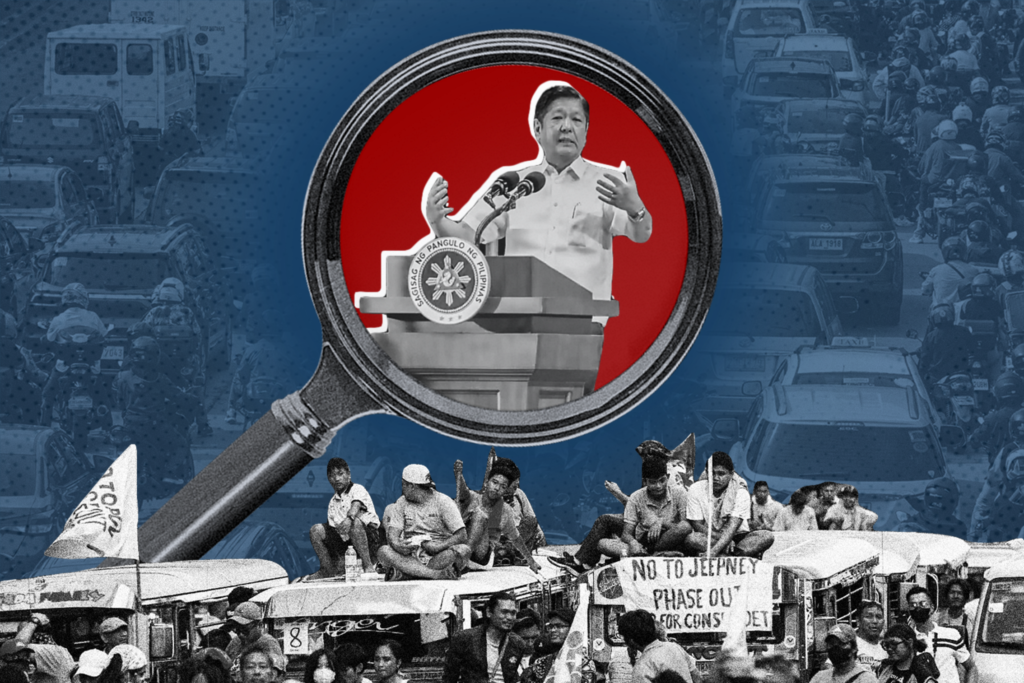‘Controlled forum:’ Rappler highlights underrecognized transport sector in Marcos’ traffic town hall

CHEERS TO Rappler for pointing out the absence of some civil society groups and transport advocates in the very first public town hall on traffic; and for actually giving them space in his story.
On April 10, President Ferdinand Marcos Jr. led the two-hour public town hall in San Juan City to discuss and resolve traffic woes in Metro Manila. On the same date, Dwight De Leon’s report on Rappler said that the hall was only half-full, occupied by government employees. De Leon cited in his report Cabinet secretaries who spoke during the program, including Metro Manila Development Authority Chairman Rolando Artes and Public Works Secretary Manuel Bonoan.
De Leon said the program featured mostly accomplishment reports and proposed projects of cabinet members. He cited data provided by government officials, including the completion rates of railway projects that the government relies on to improve the transportation system in the country.
Other than Rappler, only Inquirer.net observed that the event served as a government information drive but failed to highlight the exclusion of other sectors of the forum. Its report on April 11 said that government officials, business groups, and people’s organizations attended the program.
Controlled forum
De Leon emphasized that the discussion was a “controlled open forum,” noting that the town hall was not open to the public.
The report said that civil society organizations like Move as One, AltMobility PH, and Make It Safer Movement, along with jeepney driver coalitions Piston and Manibela, were not invited to the forum.
De Leon further reported that the emcee asked the audience to submit their questions, but the ones called were pre-selected individuals to deliver statements, including San Juan Mayor Francis Zamora, representatives from Pasang Masda, Angkas, and Employers’ Confederation of the Philippines.
Zooming into discussion
De Leon recalled Rappler’s “Be the Good” discussion which invited groups who were not present in the town hall. He highlighted the insight shared by AltMobility PH Director Ira Cruz, who emphasized the missed opportunity to lay out comprehensive plans to resolve the traffic problems: “We heard a litany of singular projects, but I failed to hear a comprehensive solution.”
De Leon also referred to Move as One Coalition’s Robie Siy, who, in reacting to the rail projects, stressed, “We cannot put all our eggs in the railway basket.” Siy said 98 percent of the public transport budget is for rail, but it “takes a long time and is only limited in terms of its influence.”
This was supported by Siy’s colleague in the coalition, Cola Cobarrubias, who described the government’s approach as “more vehicle-oriented than people-oriented in terms of mobility.”
The set up of the town hall on traffic indicated that the government is not prepared to hear views that are contrary to their own – which does not speak well of its policy-making process. The lack of consultation with stakeholders about the traffic situation exposes the town hall event as just another show, official talk that so far has not responded to the grievances of the public who experience the sorry state of transport and traffic in the city.
Meanwhile, media could fill the gap and provide time and space to air the issues that experts have discussed, amplify these views in the public forum that is open and inclusive.
Leave a Reply